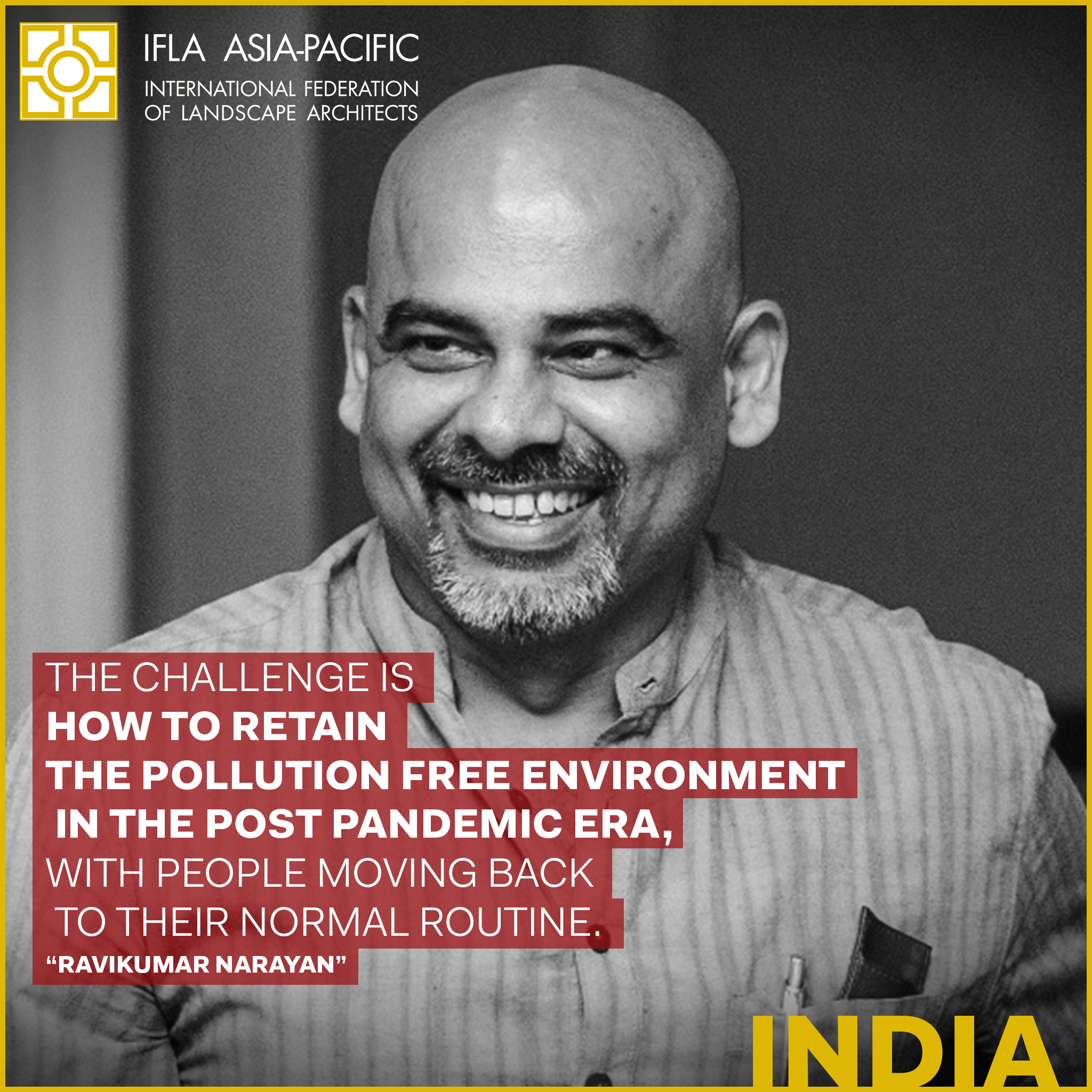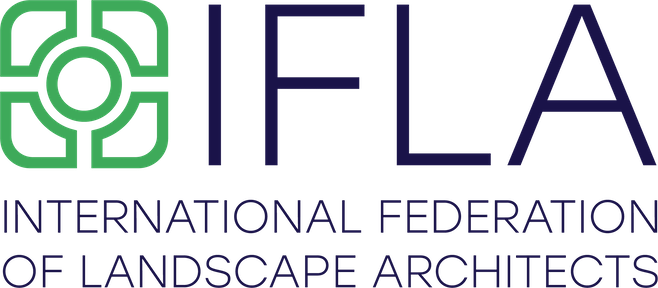LAWB's A Conversation With: ISOLA's Mr. Ravikumar Narayan
India | Mr. Ravikumar Narayan
Indian Society of Landscape Architects

How would you describe the COVID-19 pandemic situation in your country?
Presently, India is one of the most affected countries by the pandemic. Most of the Indian cities have come to a grinding halt under the lockdown, battling with the pandemic and struggling with the loss of lives and livelihoods. The most affected are the densely populated metro areas like Mumbai, New Delhi, and Chennai. The fears are not only the way it is spreading but also the uncertainty and lack of clarity regarding ways to contain the pandemic.
What are some of the hardest-hitting impacts of COVID-19 for the community of design professionals in your country?
For most of us “Work” has been “Life” until COVID-19. Health and family values had taken a back seat until now, and have gained more or rather due to importance. Lockdown has forced most of us to work from home, which is not a very common practice in India. People have switched to software that helps them to work from home, communicate to groups, conduct meetings, and have been quite successful in continuing their work. Though we are discussing with colleagues and other consultants online, this is not as effective as brainstorming sessions held in offices and this affects quick decision making and the efficiency of work is only 40%. However, the challenge is that we are not sure when work would commence in the site as the factors such as complete lockdown still imposed in several places, containment zones being maintained, migrant worker force leaving for their homes, availability of materials, etc. Unless work resumes on the site, the demand for design works will soon dry up. Post pandemic work culture is sure to change drastically. Hybrid offices with multiple options of work culture with less travel and personal meetings would be the new norm.
Who is the most vulnerable population in your country affected by this aftermath? And what can we as landscape architects do to provide help?
In my point of view, the migrant community is the most vulnerable and affected most by the pandemic. Millions of migrant laborers have been affected by the lockdown, stranded in various parts of the country and millions of them have started reverse migration to their home towns after the loss of their livelihoods. Most of them are casual laborers who are employed in the informal sector without any allowances and job security. Despite the best efforts taken by the governments and NGOs, they are facing enormous difficulties to find food and basic health care facilities. Without public transport facilities, thousands of migrants have walked mind-boggling distances to reach their hometowns. As a long time measure, we the design community could help by urging the government and development agencies to recognize the migrant community’s rural-urban linkage and devise specific social protection plans with inclusive policies, providing better access to services and facilities.
While human beings are battling with the pandemic and struggling with loss of lives and livelihoods, it looks like COVID- 19 has helped nature – plants, birds, animals, marine life, rivers to reclaim their space in the ecosystem, with pollution levels (air, water and noise) drastically reduced due to lockdown. But the challenge is how to retain the pollution free environment in the post pandemic era, with people moving back to their normal routine. Can we the design community help “Green prevail over Greed".
*Please join us in shaping our post-pandemic world and landscape architecture profession, by sharing your thoughts and idea aspirations for the new world you envision. We will be collecting everyone's ideas and sharing them with our Landscape Without Borders Community. It is time, we look forward to hearing from you. https://forms.gle/PEP8nFia17WBAkvK7
Produced by: IFLA APR Landscape without Border, Kotchakorn Voraakhom, TALA, and IFLA Secretary team
Text editor: Assoc. Prof. Mike Barthelmeh NZILA
Graphic: IFLA APR Landscape without Border, Watcharapon Nimwatanagul, TALA
Communication: Bosco, So Ho Lung, HKILA

